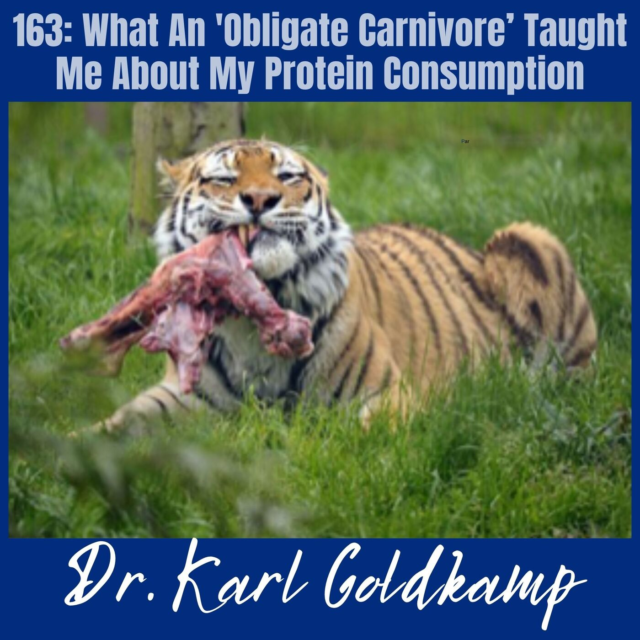163: What an Obligate Carnivore Taught Me About My Protein Consumption

Most of us understand what it means to be a carnivore, as a human or an animal. Being an obligate carnivore, however, requires something completely different.
If a cat does not get all its nutritional requirements met, it will become ill and die. Almost all cat food is processed, and that initiates a prolonged and gradual nutritional deficiency for cats.
Understanding the protein requirements of cats has made Dr. Karl become a more serious carnivore for the sake of his health.
A lesson from cats that can be applied universally
Although Dr. Karl always knew that cats are obligate carnivores, he did not truly understand what that meant until recently. One of his cats would only eat ground-up chicken meat, and she was not doing well. Now Dr. Karl understands that having only one kind of protein is wrong. It can get you into nutritional deficiency.
Different kinds of protein
There is a huge difference between muscle meat and organ meat. There is also a big difference between muscle meat from fish, muscle meat from beef, and muscle meat from chicken, pork, or lamb because all of those animals eat different things.
A nutrient deficiency
If you eat only muscle meat, you will have some kind of deficiency. So, if you are a carnivore, you are obligated to eat organ meats, like liver, too, because organ meat contains a vastly different nutrient profile to muscle meat.
Obligate carnivore
An obligate carnivore is an animal that has to eat other animals. A cat is an obligate carnivore, so there is no value in feeding cats vegetables.
Amino acids
Humans need eight essential amino acids because our bodies are unable to produce them. Our bodies can make the other amino acids that we need, however. Obligate carnivores need eleven amino acids. Their bodies are unable to make amino acids in the same way that we, as humans, can.
Feeding a cat a raw food diet
If you feed a cat a raw food diet it has to contain a variety of different kinds of meats to cover all the nutritional needs of the cat and prevent any deficiencies.
Secondary carbohydrates
In the wild, obligate carnivores get secondary carbohydrates from eating the viscera of their prey which contains undigested carbohydrates.
Cats cannot store fuel
Cats in the wild cannot store fuel as humans can, so they need to hunt daily.
Gluconeogenesis
Humans can make glucose from the amino acids in protein. That is called gluconeogenesis.
Cats need glucose
Cats also need glucose. They produce it via gluconeogenesis from the protein they eat.
Protein is the perfect food
If you have nothing other than meat to eat, it will give you enough appropriate glucose to sustain your glucose activity for your red blood cells and nervous system.
Diversify
Diversify your protein sources, or else you could self-induce nutritional deficiencies.
Links and resources:
Check out the Keto Naturopath website, join our Facebook Group, and follow us on Pinterest!
Subscribe to our YouTube Channel!
Download our Free Keto Foods List
Visit our partners
Buy Keto Friendly Dry Farm Wines
Get your KetoMoJo Here and test your ketones.

This is fascinating!